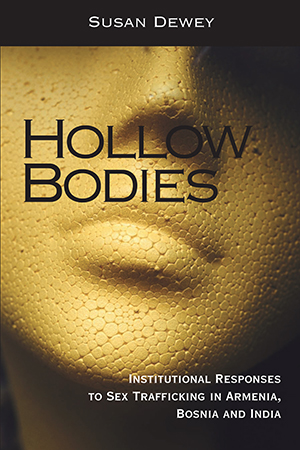Susan Dewey draws on her field research in Armenia, Bosnia-Herzegovina, and India—where she spoke with actors ranging from bar workers in Bombay to US embassy employees in Armenia to senior officials at international NGOs—to shed light on the trade in women’s bodies and efforts to stop it. In her rich ethnographic study, she focuses on the structural flaws in place that allow, and sometimes even help, sex trafficking to continue to flourish.
Susan Dewey is assistant professor in the Gender and Women's Studies Program at the University of Wyoming.
"As a multisited ethnography that asks us to rethink an important policy issue, Hollow Bodies is applied anthropology at its best.... Dewey has filled an important gap in our knowledge about discourses on trafficking at the local and global level."—American Ethnologist
"Susan Dewey's ethnographic research with female trafficking victims reminds us we must understand victims before we can assist them."—Trends in Organized Crime
"A very, very good book. Dewey’s ethnographic cases of international and local officials, as some try to thwart traffickers while others become unwittingly complicit in trafficking, is so revealing. This is feminist investigating at its best."—Cynthia Enloe, Clark University
"A refreshingly unprecedented look at the issue of sex trafficking.... Rather than taking sides in the tired old debate between 'abolitionists' and 'sex worker rights advocates,' Dewey centers her well-written analysis on institutional responses.... She cogently demonstrates how cultural contexts—particularly bureaucracy and social injustice—are complicit in both sex trafficking and responses to it."—Lucinda Peach, American University






